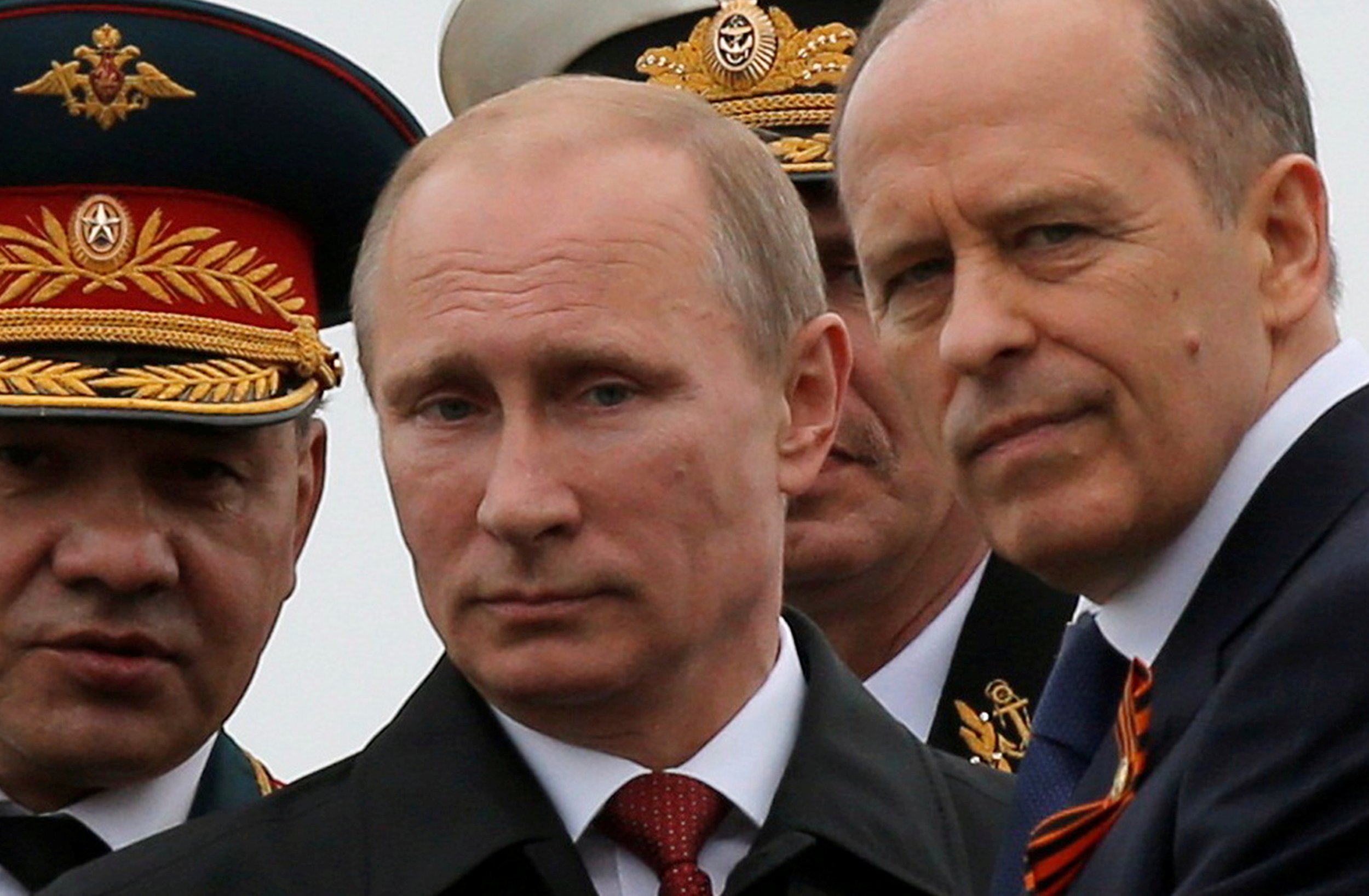
This time last summer, as the presidential candidates locked down their respective nominations, before we woke up to Russian meddling in our electoral processes, "fake news" was a foreign phrase for most Americans.
Since then, as the extent of Russian influence became clear, certain sectors of government, the private sector, the media, and academia have made the right noises, founded the right initiatives, and thought Big Thoughts about the problem.
But the development of an anti-disinformation cottage industry and the complete lack of U.S. leadership on the issue mean we are no closer to solving the fake news crisis today than we were a year ago.
I've spent my career working for organizations that were targets of fake news emanating from Russia, most recently on the front line of the information war, as a strategic communications adviser to the Ukrainian Ministry of Foreign Affairs. I've watched Russia's online influence campaign – and with it, the West's alarm – swell from an issue affecting Europe's periphery to one that threatens the bedrock of the transatlantic order.
As the industry fighting fake news has grown, however, we seem to have lost the forest for the trees, abandoning a common adversary for unproductive internal squabbles aided and abetted by an absent U.S. administration.
Recently, the Alliance for Securing Democracy, a bipartisan anti-disinformation initiative backed by an impressive list of former U.S. national security officials, launched Hamilton68, a real-time tracking tool that "seeks to expose the effects of online influence networks and inform the public of themes and content being promoted to Americans by foreign powers."
By aggregating the tweets of 600 accounts that are known Kremlin influence agents, pro-Kremlin individuals, or others influenced – knowingly or unknowingly – by Kremlin disinformation, the dashboard provides an accessible, 40,000-foot view of what Russia is pushing on the English-language Internet at any given moment.

Within 24 hours, experts began to pile on criticism of the platform for everything from not disclosing the 600 accounts it was tracking to stating what they viewed as obvious. "What journalist needs a "dashboard" to know that the Russian Foreign Ministry's Twitter account belongs to "Russian-sponsored information campaigns?" asked Kevin Rothrock of Meduza . The Twitter brouhaha continued when the New York Times noted Hamilton68's analysis that "the top hashtag…linked to Russian influence operations at one point on Thursday was #FireMcMaster," while a report by Atlantic Council's Digital Forensics Research Lab found the hashtag had its roots on alt-right social media. (The two analyses, in fact, did not contradict each other; DFRLab's report uncovered the genesis of the campaign, while Hamilton68 tracked its amplification by the Russian influence network.)
Constructive criticism is integral to doing impactful work, but it's hard not to feel like we are navel-gazing and nitpicking when there are much larger issues at stake, particularly because the Hamilton68 dashboard is exactly the type of tool we need to advocate for policymaking progress on hostile foreign disinformation.
Not all Americans are experts on Russia and its influence operations. Not all Americans even view Russia as a major threat. To a small majority of us, highlighting the Russian Foreign Ministry as an agent of Russian influence and showing the effect it has on American political discourse is obvious. For many others it is eye-opening. I've argued before that rather than fact-checking and preaching to an audience of the converted at near-weekly conferences on the issue, our focus in the fight against fake news needs to be on ordinary people; we should continue to develop accessible, digestible tools like Hamilton68 to reach them.
One of the challenges, of course, is that we lack a whole-of-government strategy that would dictate priorities like this. Last week, Politico reported that Secretary of State Rex Tillerson is stonewalling $80 million in funding for his Department's Global Engagement Center, a joint Pentagon-State Department initiative to counter both Russian and Islamic State influence.
Through his inaction, Tillerson is not only sending the Kremlin a message that the U.S. does not care to combat Russian disinformation. To date, the European Union has also been absent in many of the policymaking discussions surrounding fake news in Europe, as Frederica Mogherini has refused to dedicate monetary or human resources to the EU's East Stratcom Task Force, leaving the continent's efforts to fight disinformation disjointed and duplicative. The United States seems to be headed down a similar path. The Global Engagement Center could serve as the convener and agenda-setter for the response to disinformation both in Washington and among allies in Europe. By blocking its funding, Tillerson is once again abdicating U.S. leadership where it is needed most.
Since there is little chance that the Trump administration will take up arms the fight against Russian disinformation, this responsibility lies with the media, NGOs, and analysts. But we must refocus our energy outside of the expert community to reach those in the Kremlin's crosshairs if we want to gain ground in this fight.
Nina Jankowicz is a George F. Kennan Fellow at the Woodrow Wilson Center's Kennan Institute in Washington, DC. The opinions presented here are her own.
Uncommon Knowledge
Newsweek is committed to challenging conventional wisdom and finding connections in the search for common ground.
Newsweek is committed to challenging conventional wisdom and finding connections in the search for common ground.
About the writer
To read how Newsweek uses AI as a newsroom tool, Click here.








